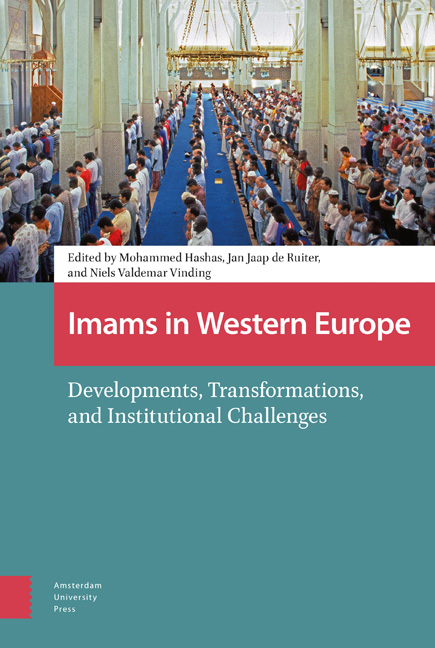17 - Imam Training in the Legal Context of Islam in Spain
Published online by Cambridge University Press: 06 January 2021
Summary
Abstract
In this chapter, imam training in Spain is treated following three questions and lines of argumentation: How does the university system in Spain look like? What kind of religions are present in the country and how are imams getting trained?
Keywords: Islam in Spain, Church State relations, Catholic Church, constitution, religious freedom
The university system in Spain
The Spanish university system consists of both public and private universities. There are 51 public universities, of which one (Universidad Nacional de Educación a Distancia, or UNED; the National University of Distance Learning) is an open university, and seventeen private universities. There are also two summer universities: Menendez Pelayo University and the International University in Andalucía. Of the seventeen private universities, one (the University Oberta de Catalonia) is an open university and seven belong to the Catholic Church. The Agreement of 3 January 1979 between the Spanish State and the Holy See concerning education and cultural affairs stipulates the following: ‘State universities, with prior agreement from the competent church authority, may establish centres of higher learning for the study of Catholic theology’ (Article XII).
The Catholic Church thus has the right to establish faculties of theology within public universities, but has chosen not to do so. Instead, the church created faculties of theology within its own universities. There are three other groups – Jews, Protestants, and Muslims – that signed a Cooperation Agreement with the state in 1992. According to these Cooperation Agreements and the Organic Law 6/2001 of 21 December 2001, these groups are also allowed to establish university centres for theological studies, where their religious ministers can be trained and can receive a state-recognized certification after completion of the training. However, as of the moment of this book's publication, none of these groups have acted upon this opportunity. Protestants and Muslims have established their own theological centres, but without official recognition.
Religions in Spain
Article 16 of the Spanish Constitution recognizes the fundamental right of religious freedom for not only individuals, but also groups and communities.
- Type
- Chapter
- Information
- Imams in Western EuropeDevelopments, Transformations, and Institutional Challenges, pp. 337 - 358Publisher: Amsterdam University PressPrint publication year: 2018



